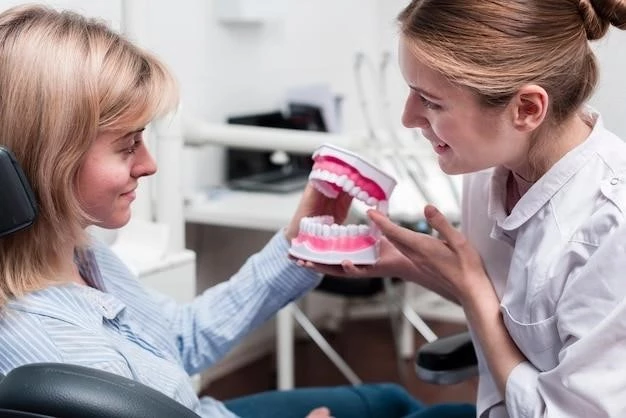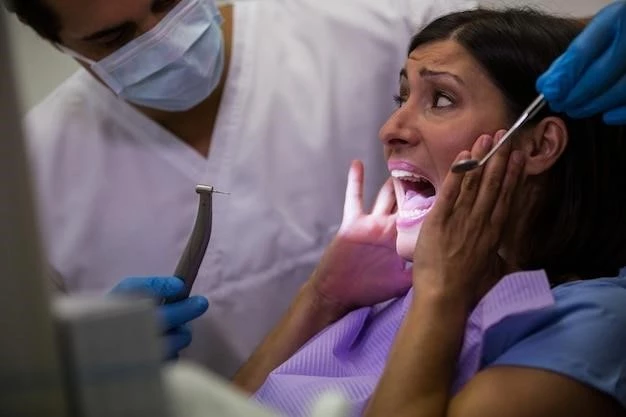Disease ⏤ Dental Caries
Dental caries‚ commonly known as tooth decay‚ is a prevalent oral health issue caused by bacteria that attack the enamel of the teeth‚ leading to cavities. This article will delve into understanding dental caries‚ its impact on oral health‚ prevention strategies‚ the role of dentists‚ treatment options‚ dental fillings‚ the importance of brushing‚ the significance of flossing‚ and conclude with key insights.
Introduction
Welcome to an in-depth exploration of dental caries‚ a common disease affecting individuals worldwide. Dental caries‚ also known as tooth decay‚ is a result of bacterial activity that leads to the demineralization of enamel and the formation of cavities. This article aims to provide a comprehensive understanding of the causes‚ impact on oral health‚ prevention strategies‚ and treatment options related to dental caries. By delving into the mechanisms behind this condition‚ we can better appreciate the importance of maintaining good oral hygiene practices to prevent the development of cavities and preserve dental health. Let’s delve into the intricate world of dental caries‚ exploring its implications and shedding light on effective prevention and treatment methods.
Understanding Dental Caries
Dental caries‚ a prevalent oral disease‚ is primarily caused by the interaction of bacteria in the mouth and sugars from foods and beverages. Bacteria produce acids that erode the enamel‚ leading to the formation of cavities. The demineralization process occurs when acids reduce the minerals in the enamel‚ weakening the tooth structure. This deterioration‚ if left unchecked‚ progresses to deeper layers of the tooth‚ resulting in significant damage and the need for treatment. Understanding the process of dental caries is crucial in implementing effective prevention strategies to maintain optimal oral health. By recognizing the key role of bacteria‚ acids‚ and sugars in this condition‚ individuals can make informed decisions about their oral hygiene practices and dietary choices to mitigate the risk of developing cavities. Through a comprehensive understanding of dental caries‚ individuals can empower themselves to take proactive steps in preserving their teeth and overall oral health.
Impact on Oral Health
The impact of dental caries on oral health is significant. Left untreated‚ cavities can lead to various complications‚ including toothaches‚ infections‚ and even tooth loss; As the enamel is compromised‚ the inner layers of the tooth become vulnerable to bacterial invasion‚ causing inflammation and potential abscess formation. Moreover‚ the presence of untreated cavities can contribute to systemic health issues by allowing bacteria to enter the bloodstream and affect other parts of the body. Additionally‚ the pain and discomfort associated with advanced dental caries can impair an individual’s quality of life‚ affecting daily activities such as eating and speaking. Understanding the detrimental effects of untreated cavities underscores the importance of preventive measures and regular dental check-ups to maintain optimal oral health. By addressing dental caries promptly‚ individuals can prevent the progression of decay‚ preserve their natural teeth‚ and promote overall well-being.
Prevention Strategies
Prevention is key in combating dental caries. Effective strategies include maintaining good oral hygiene practices such as regular brushing with fluoride toothpaste to remove plaque and strengthen enamel. Flossing daily helps clean between teeth where a toothbrush can’t reach‚ preventing plaque buildup and reducing the risk of cavities. Limiting sugary and acidic foods and beverages can also help protect teeth from demineralization and acid erosion. Additionally‚ professional dental cleanings and check-ups allow for early detection of cavities and prompt intervention. Dentists may recommend dental sealants or fluoride treatments to provide added protection against decay. Education on proper oral care habits and the importance of routine dental visits plays a vital role in preventing the onset and progression of dental caries. By adopting these preventive measures‚ individuals can safeguard their oral health and preserve their teeth for years to come.
Role of Dentists
Dentists play a crucial role in the prevention‚ diagnosis‚ and treatment of dental caries. Through regular dental examinations‚ dentists can assess the oral health of their patients‚ identify early signs of cavities‚ and provide personalized recommendations for maintaining healthy teeth. Dentists are trained to detect areas of decay that may not be visible to the naked eye‚ allowing for timely intervention to prevent further damage. In addition to routine cleanings and check-ups‚ dentists may recommend professional fluoride treatments to strengthen enamel and reduce the risk of cavities. When cavities are detected‚ dentists can perform necessary treatments such as fillings to restore the structure and function of the affected tooth. Dentists also educate patients on proper oral hygiene practices‚ nutritional choices‚ and the importance of regular dental visits to prevent the development of dental caries and promote long-term oral health; By partnering with dentists and following their guidance‚ individuals can work towards maintaining a healthy smile and a strong foundation of oral well-being.
Treatment Options
When dental caries progress to the point of requiring treatment‚ several options are available to restore the health and integrity of the affected teeth. One common treatment for cavities is dental fillings‚ where the decayed portion of the tooth is removed‚ and the space is filled with a durable material such as amalgam or composite resin. This filling restores the tooth’s structure and prevents further decay. In cases where the decay has spread extensively‚ a dental crown may be necessary to cover and protect the remaining tooth structure. For more advanced decay that affects the tooth pulp‚ root canal therapy may be performed to remove the infected tissue and seal the tooth to prevent reinfection. In severe cases of decay or damage‚ tooth extraction may be the only viable option to prevent the spread of infection to neighboring teeth. Dentists assess the extent of decay and recommend the most suitable treatment based on the individual’s oral health needs. Following treatment‚ maintaining good oral hygiene practices and attending regular dental check-ups are essential to prevent the recurrence of dental caries and preserve the overall health of the teeth and gums.
Dental Fillings
Dental fillings are a common treatment for addressing cavities caused by dental caries. The process of placing a filling involves removing the decayed portion of the tooth‚ cleaning the affected area‚ and filling the cavity with a suitable material to restore the tooth’s function and structure. Different types of filling materials are available‚ including amalgam‚ composite resin‚ gold‚ and porcelain. Amalgam fillings are durable and cost-effective‚ while composite resin fillings can be color-matched to the natural tooth‚ providing a more aesthetically pleasing option for visible teeth. Gold and porcelain fillings are long-lasting and resistant to wear. The choice of filling material depends on factors such as the location of the cavity‚ the extent of decay‚ aesthetic preferences‚ and budget considerations. Dental fillings not only repair the damage caused by dental caries but also prevent further decay and protect the tooth from additional harm. Regular dental examinations are essential to monitor the condition of fillings and ensure their longevity‚ contributing to the overall maintenance of oral health.
Importance of Brushing

Brushing plays a fundamental role in preventing dental caries and maintaining optimal oral health. By brushing the teeth twice daily with fluoride toothpaste‚ individuals effectively remove plaque—a sticky film of bacteria— that can lead to enamel erosion and cavities. Brushing helps to dislodge food particles and bacteria from the teeth‚ reducing the risk of decay. It also stimulates the gums‚ promoting healthy gum tissue and preventing gum disease‚ which can exacerbate the effects of dental caries. Proper brushing technique involves using a soft-bristled toothbrush and gentle circular motions to clean all surfaces of the teeth‚ including the front‚ back‚ and chewing surfaces. Brushing before bedtime is crucial‚ as it helps eliminate bacteria accumulated throughout the day‚ safeguarding the teeth during the night. Regular brushing‚ combined with flossing and routine dental check-ups‚ forms the cornerstone of a comprehensive oral hygiene regimen that is vital for preventing dental caries and preserving the health of the teeth and gums.
Significance of Flossing
Flossing is an essential component of an effective oral hygiene routine that plays a crucial role in preventing dental caries and maintaining optimal oral health. While brushing cleans the surfaces of the teeth‚ flossing targets the areas between the teeth and along the gum line where a toothbrush cannot reach. These interdental spaces are prone to plaque buildup‚ which can lead to decay and gum disease if left unaddressed. By flossing daily‚ individuals remove food debris‚ bacteria‚ and plaque from these hard-to-reach areas‚ reducing the risk of cavities and supporting gum health. Proper flossing technique involves gently guiding the floss between each tooth‚ curving it against the tooth to form a C shape‚ and sliding it up and down to clean the sides. Regular flossing not only helps prevent dental caries but also contributes to fresh breath‚ healthy gums‚ and overall oral well-being. Incorporating flossing into a daily oral care regimen along with brushing and regular dental visits is essential for comprehensive oral hygiene and the prevention of dental caries.
Conclusion
In conclusion‚ dental caries‚ or tooth decay‚ remains a prevalent oral health concern that can have serious implications if left unmanaged. Understanding the causes‚ impact‚ prevention strategies‚ and treatment options associated with dental caries is paramount in promoting oral health and overall well-being. By addressing the role of bacteria‚ sugars‚ and acids in the development of cavities‚ individuals can make informed decisions to protect their teeth. Prevention strategies such as regular brushing‚ flossing‚ limiting sugary foods‚ and seeking professional dental care are crucial in combating dental caries. Dentists play a critical role in diagnosing‚ treating‚ and educating patients on maintaining healthy teeth. Treatment options like dental fillings help restore the structure of teeth affected by decay. The importance of brushing and flossing cannot be overstated in preventing dental caries and supporting optimal oral hygiene. By embracing good oral care habits and partnering with dental professionals‚ individuals can safeguard their smiles and enjoy lasting dental health. Prioritizing preventive measures and prompt treatment when needed are key steps in the fight against dental caries‚ ensuring a bright and healthy smile for years to come.
